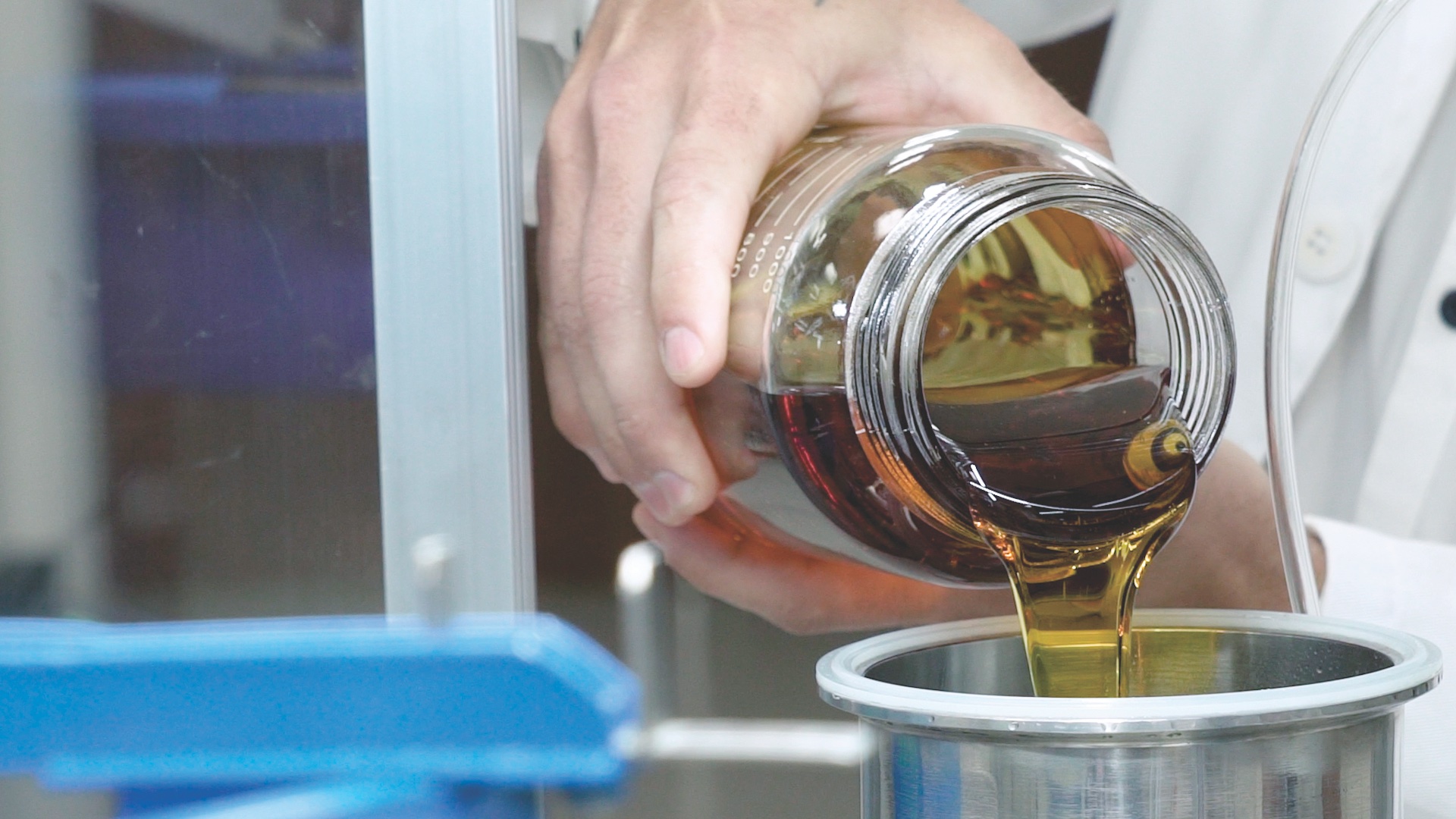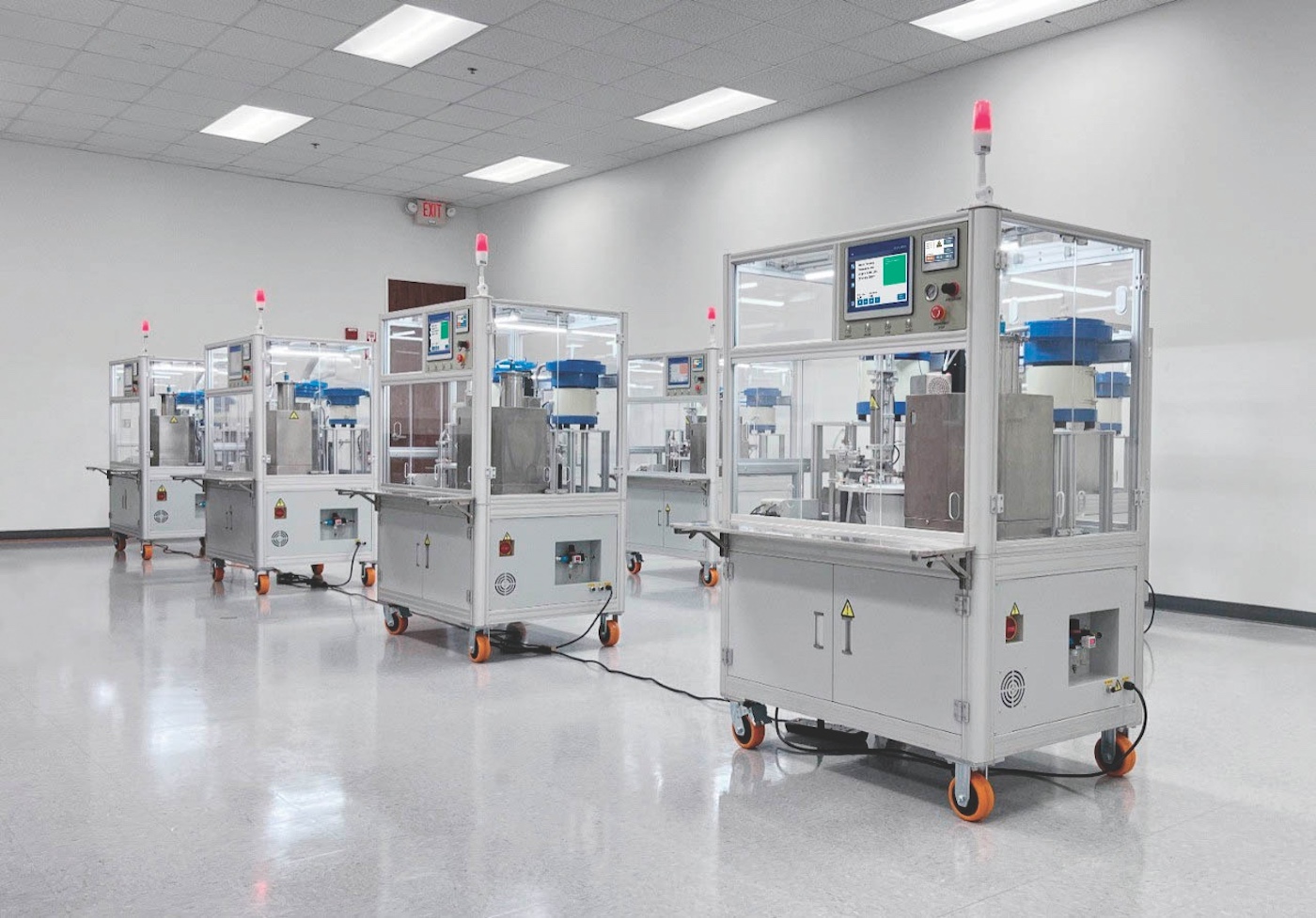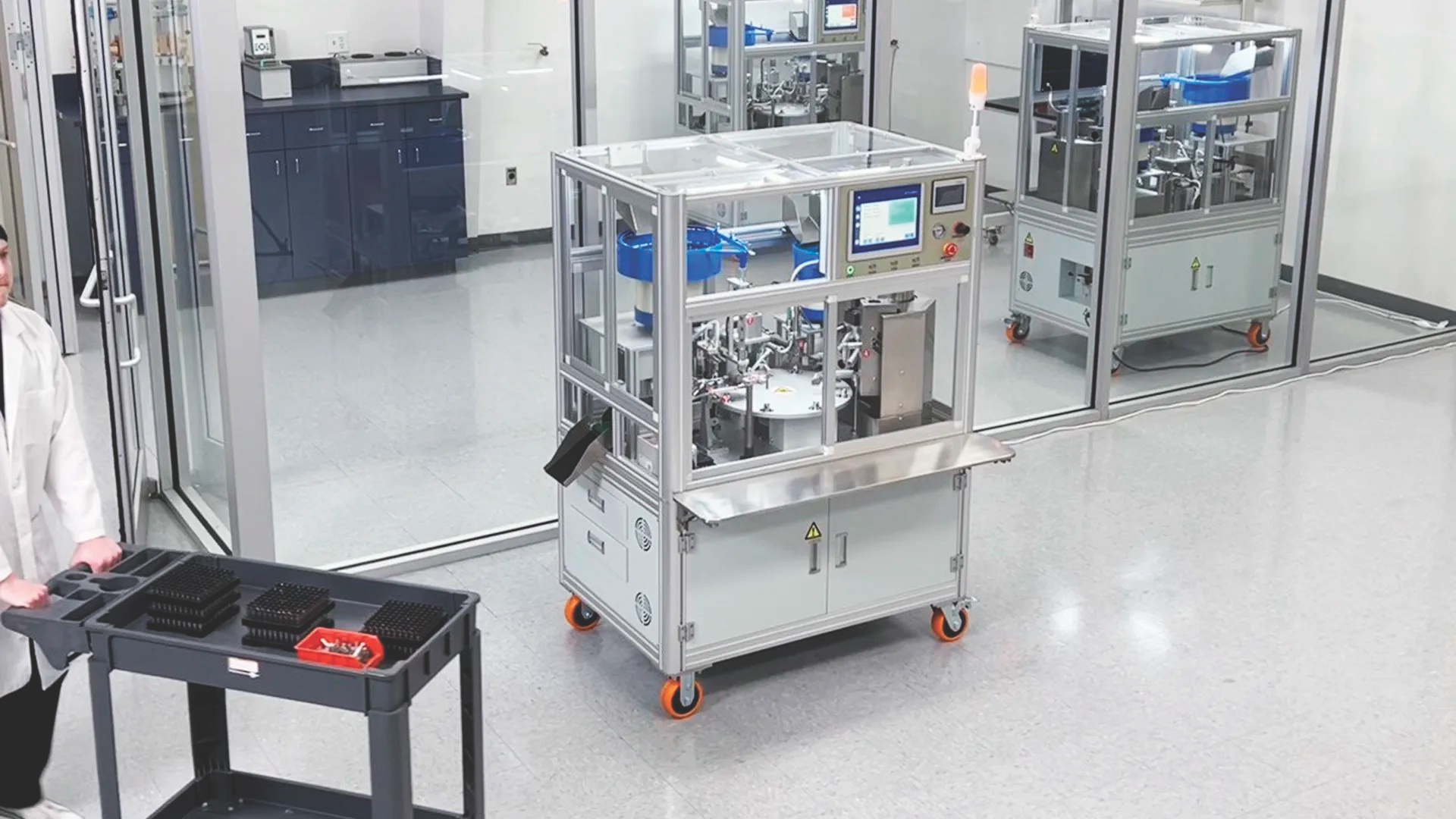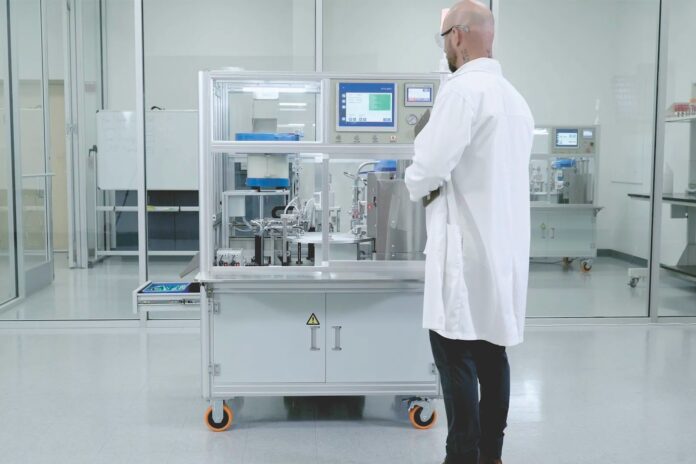If you’re a cannabis operator still filling oil cartridges manually, your entire business model is at risk. What if you receive an order for 30,000 vape cartridges, and the dispensary wants them now? Can you fill the order fast enough before another brand takes your place? And how many of those carts will be returned because the oil didn’t reach the fill line? What will those chargebacks do to your profit margins?
“A lot of people who come into this space have little to no experience doing predictive supply-chain analytics,” said Jeff Wu, director at Xylem Technologies. “And when a dispensary calls you with an order, it’s typically because the shelf space is available now. They’re not going to keep it empty for six weeks.”
Fortunately, there’s a solution—one that many other industries have embraced for a long time: robot-powered, automated manufacturing, which can fill orders at ten times the speed of manual operations and with almost no mistakes. Where do you think manufacturers like Ford or Pepsi would be if they were doing everything by hand?

This is exactly the challenge Wu encountered when collaborating with a major delivery service several years ago. Massive orders would come in with a two-week deadline, and the team struggled to keep up. The situation seemed impossible, especially with the team trying to fill all the carts by hand.
“But then I realized it was possible [to complete the job on time],” Wu said. “I’d done it before in consumer electronics. You just need robots, so I went ahead and built them.” Ultimately, the experience led Wu to create Xylem Technologies’ line of automated robotic cartridge-filling equipment. “These robots not only take the place of ten people, but they’re able to put out product extremely fast, which is critical in this industry where dispensaries are sometimes less than well-organized.”

While robotics can solve a ton of labor issues, Wu said, more than labor is involved. “For instance, let’s say you get a 20,000-unit order on Monday morning,” he said. “If you decide to double-shift it, you can have the order done by Tuesday afternoon and out the door Wednesday, assuming your testing is fast enough. You can’t do that without automation.”
Back when Wu ran a consumer electronics operation, he would know the order volume six months in advance—plenty of time to prep his factories. “In cannabis, sometimes you get an order with a week’s lead time,” he said. “If you miss that order cycle, dispensaries order from somebody else, and you miss that shelf space. Then you’re on a downward sales cycle.”
He knows how difficult it can be to pull out of downward spirals, because he’s experienced them firsthand. “It really hurts, and a lot of people don’t realize that if you’re not on the shelf with your brand constantly refreshed, customers will move on to the next brand,” he said.
Operators also need to keep in mind delivery speed and product degradation. Live resins, for example, have a specific window of time before they start to lose flavor and effect. If you’ve burned six weeks just to get your product delivered to a dispensary, you’re not left with a whole lot of time before the flavor starts to change, leaving your customers disappointed.
The other big thing that will sour customers on a brand is carts that are only partially filled. Sure it’s easy enough to use a syringe if you need to fill a few manually, but teams that try to handle entire orders in this manner are practically living in the Stone Age compared to their competitors who’ve embraced automation.

“If you want to fill carts consistently with a fraction of a percent of deviation in terms of weight and without flooding the core, it’s very difficult by hand,” Wu said, adding that Xylem Tech’s automated cart-filler solves the issues. “When people look at a vape produced by our machines, they often want to know why our cartridges look fuller. It’s because we cap fast and we do it at a low temperature, so the oil doesn’t flood into the core. By doing that, the vape looks full.”
Full vape cartridges translate to fewer returns at the store, where even a 2-percent failure rate can destroy a business. One company where he consulted, Wu recalled, was “riding high at the time, with $6 margins on a resin pen, but each failure or customer return would mean giving them a new pen for free, which negated those margins by six or seven times. Essentially, a 2-percent failure rate stripped away 30–40 percent of all operating profits. The math was absolutely brutal.”
By contrast, he said, Xylem Tech’s automated systems’ failure rate is two or three out of 5,000. That’s math worth celebrating if you want your business to thrive.











